i am not sure how to resolve this math problem. what should i recall and where did i miss something. i have tried different opportunities. i think i just call not existing index or something like that..
#include <iostream>
using namespace std;
double recur(int n, int x);
double x;
int number;
int main()
{
cout << "enter n: " ;
cin >> number;
cout << endl;
do
{
cout << "enter float x!=0: ";
cin >> x;
cout << endl;
} while (x==0);
cout << "recur(" << number << "," << x << ")=" << recur(number, x) << endl;
system("pause");
}
double recur(int n, int x)
{
if (n > 1) return (x * recur(n, x - n) * recur(n - 1, x));
else if( n == 1) return x * recur(n,x) - x;
else return 1;
}
Formula:

